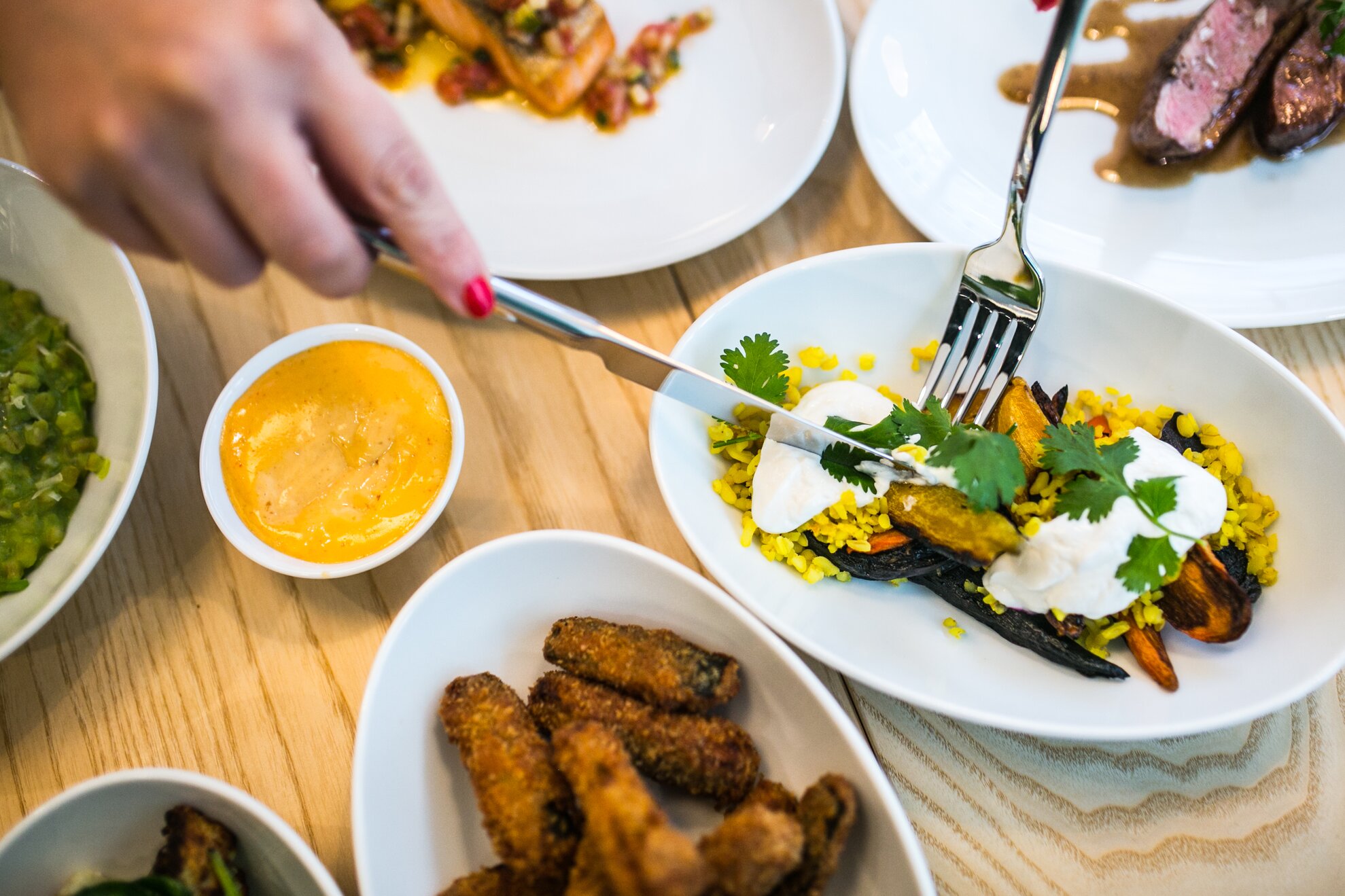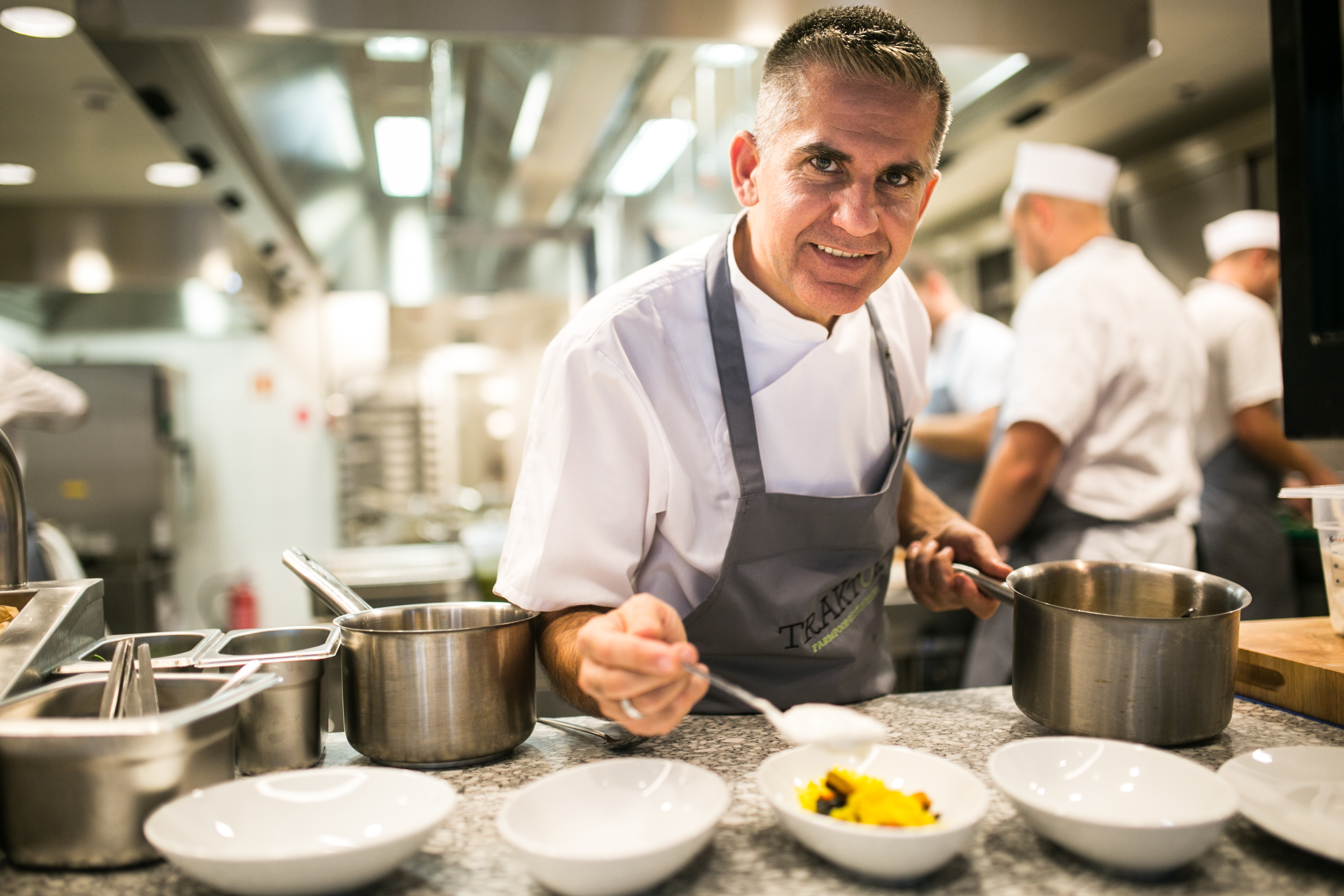These days, chefs in the Hungarian capital, and also in the provinces, are working according to two gastronomic trends: one is a revolution in Hungarian cuisine, a laudable mission with many challenges; and the other is to follow international fashion and stick by proven formulas. This copy-paste approach has been seen far too many times in Budapest already. The first tendency merits further investigation.

Attila Bicsár is not the kind of chef who flits from kitchen to kitchen. All in all, he spent nearly 20 years at the Alabárdos Restaurant, where he gained his professional training. In addition, his constant desire to improve also led him abroad.
His new establishment in Zrínyi utca functioned as a variety of entertainment venues before undergoing a complete transformation in the last six months. Now in place is a very professional, semi-open kitchen, coupled with great ventilation and a thoroughly modern space. At first, it may look a little sterile, but the olive trees and aforementioned tractor bring it to life.

If you can, try and get a table near the windows overlooking the street or close to the kitchen, where colourful fruit and vegetables prominently feature. Why, you may ask, are the ingredients raw, if this is a farm-to-table concept?
That’s the very ars poetica of Traktor. The ‘farm food’ aspect of this farm-to-table restaurant is represented by the courgettes, green beans and eggs on display, carefully chosen after serious dialogue with farmers and producers about their crops. On this visit, Attila presented a long list of elements from the current menu and where they came from: cauliflower from Pálmonostor, cucumber from Cserkeszőlő and plums from Kecel. The oysters, on the other hand, are French, the rib eye Australian and the lamb from New Zealand. The duck and chicken are domestic, the fish and steak foreign. The farm-to-table concept is only feasible up to a certain point.

All the same, Attila works closely with local farms, talking, looking and tasting. He wants the best of everything, which is why not all the meat is Hungarian. Quality vegetables, herbs and spices combine with international ingredients.
Of the current selection on offer, you’ll find kohlrabi with prawns, creamed peas and spring onions (2,500 forints). The house steak tartare (2,900 forints) comes with capers and wasabi mayonnaise, stacked on Marmorstein’s bread, an interesting variant of this dish.
Your four-vegetable platter (1,200 forints) may then accompany a meat dish such as pan-fried duck breast (3,200 forints) or fish such as salmon. The diversity of seafood here is noticeable, whether it’s scallops, lobster or sea bass, as Traktor co-owner Péter Palotás is also behind the Big Fish bistro and the fish market in Budaörs. Attila and Péter were once schoolmates.

As for the duck, its five-spice-honey-soy flavour evokes Asia, while the salmon, instead of the traditional lemon-butter version, is brought out by the taste of tomatoes, capers and sardines. This is also when your four-vegetable platter comes into play, the baked courgettes in breadcrumbs with Sriracha mayonnaise, and the salt-baked carrot and turmeric bulgur topped with ginger yoghurt and coriander. These dishes are placed in the centre of the table for communal dining and imaginative pairings.
The food, mostly gluten- and lactose-free, is not only fresh as can be but shows what you can do with a carrot or an aubergine when you lift it from everyday surroundings.
Traktor Farmfood Restaurant District V. Zrínyi utca 2.
Open: Daily noon-11pm.




